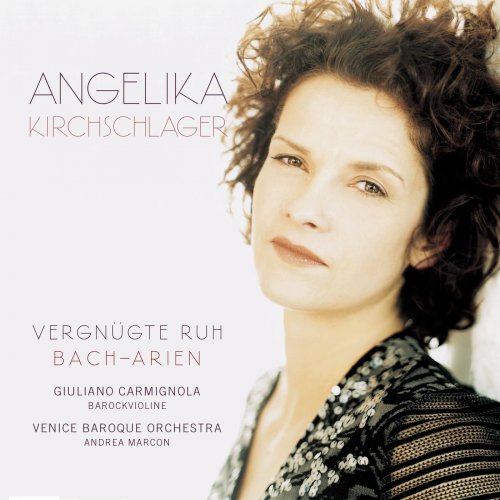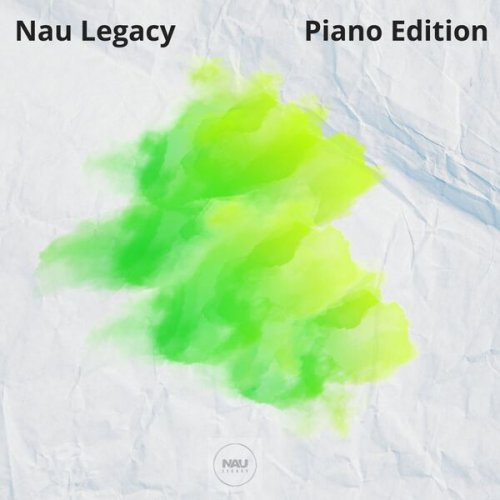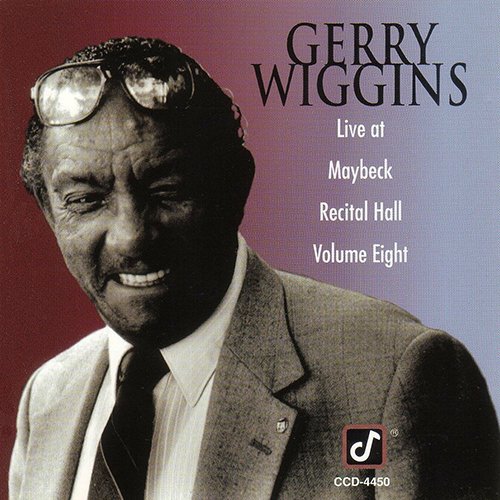Angelika Kirchschlager - Bach: Arias (2002)

Artist: Angelika Kirchschlager
Title: Bach: Arias
Year Of Release: 2002
Label: Sony Classical
Genre: Classical, Vocal
Quality: FLAC (tracks) / MP3 320 Kbps
Total Time: 01:12:04
Total Size: 366 Mb / 183 Mb
WebSite: Album Preview
Tracklist: Title: Bach: Arias
Year Of Release: 2002
Label: Sony Classical
Genre: Classical, Vocal
Quality: FLAC (tracks) / MP3 320 Kbps
Total Time: 01:12:04
Total Size: 366 Mb / 183 Mb
WebSite: Album Preview
1. Erfreute Zeit (Cantata No. 83)
2. Vergnügte Ruh (Cantata No. 170)
3. Schlummert Ein, Ihr Matten Augen (Cantata No. 82)
4. Nichts Kann Mich Erretten (Cantata No. 74)
5. Wo Zwei Und Drei Versammelt Sind (Cantata No. 42)
6. Herr, Was Du Willst (Cantata No. 156)
7. Erbarme Dich (St. Matthew Passion)
8. Widerstehe Doch Der Sünde (Cantata No. 54)
9. Laudamus Te (Mass in B Minor)
10. Sinfonia from Cantat No. 156
11. Bereite Dich Zion (Christmas Oratorio)
12. Wie Soll Ich Dich Empfangen (Christmas Oratorio)
Performers:
Angelika Kirchschlager, Mezzo-soprano
Venice Baroque Orchestra
Conductor – Andrea Marcon
This is a beautiful recording. The music is great and includes some of Bach's most famous arias, as well as several less so; however, about two thirds are slow, solemn, devout, and often mournful. The singing is wonderful. Angelika Kirchschlager's voice, flawlessly produced even in the very low register dictated by baroque tuning, is smooth as silk and warm as velvet. Her intonation is immaculate, and her breath control lets her spin out and shape endless phrases; every note is alive and expressive. The orchestra is excellent, its rich but transparent sound a perfect background to the voice; the oboes are particularly prominent, with the bassoon sometimes acting as continuo. There is one instrumental sinfonia, from Cantata No. 156, better known as the slow movement of a piano concerto; here, the oboist has the solo line, embellishing it with great gusto. Carmignola's playing of the violin obbligatos, though undoubtedly "authentic," is less persuasive: in the "Erbarme dich" from the St. Matthew Passion, his rhythms, with exaggerated double-dotting, are jerky and he gets ahead of the orchestra; the "Laudamus te" from the Mass in B Minor comes out very clipped and disjointed. Kirchschlager's approach is mellower and more lyrical, though she tries to match his style. Among the program's highlights are "Schlummert ein," the lullaby from Cantata No. 82, with its beguilingly lovely, peaceful melody, and "Wo zwei und drei versammelt sind," from Cantata No. 42, remarkable for its complex orchestral introduction and interludes and its dramatic middle section for voice and continuo alone. The program ends with the beloved chorale melody Bach used countless times: "Wie soll ich dich empfangen" from the Christmas Oratorio. -- Edith Eisler






![Sibel Köse Septet - In Good Company (2025) [Hi-Res] Sibel Köse Septet - In Good Company (2025) [Hi-Res]](https://www.dibpic.com/uploads/posts/2025-12/1765846644_uizwujac4ht2d_600.jpg)
![Tomasz Stańko, Tomasz Szukalski, Dave Holland & Edward Vesala - Balladyna (1976/2025) [Hi-Res] Tomasz Stańko, Tomasz Szukalski, Dave Holland & Edward Vesala - Balladyna (1976/2025) [Hi-Res]](https://www.dibpic.com/uploads/posts/2025-12/1765717548_cover.jpg)
